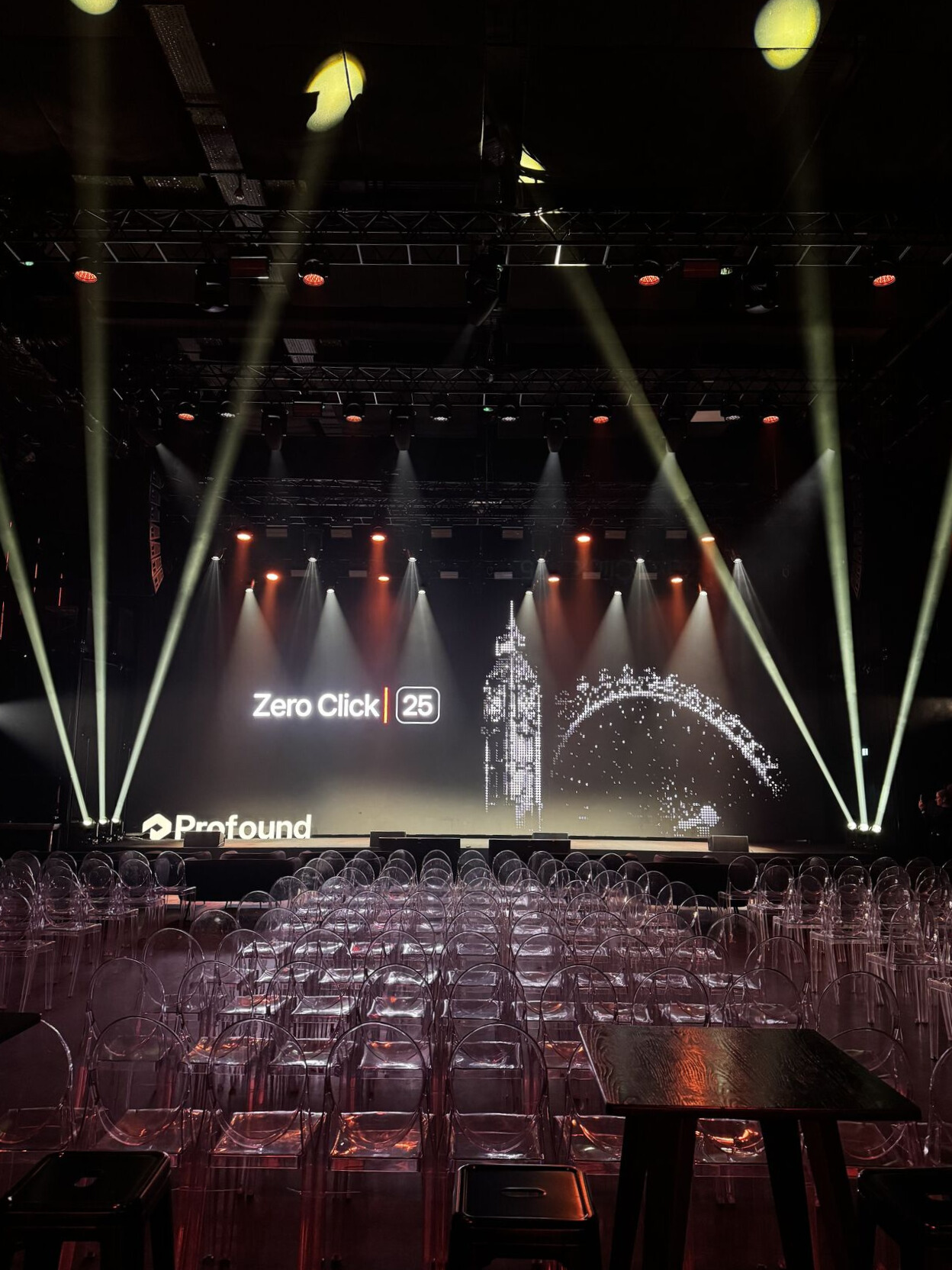
- FAQs are one of the biggest, quickest wins you can implement for AI search.
Top-performing products in AI search have approximately 10x the number of FAQs than lower-performing products. Outside of e-commerce, they support answer-first content and give AI that all-important context it needs. - Natural language matters more than ever.
There were multiple mentions of “semantic URLs” throughout the day – writing URLs in a way that includes natural language. This is something that’s been valuable from an SEO perspective for a long time, and it seems that the principle of writing content to be informative for the end user, and making that information natural-sounding and succinct, isn’t going anywhere. - Digital PR is becoming even more influential.
With 90% of AI citations coming from earned media, brands need dedicated AI-targeted PR strategies. This means understanding what sites LLMs are citing (and this will vary by platform), and the types of content being rewarded – and then making sure your brand is visible here. - Shopping behaviour is shifting from human decisions to agent decisions.
If your product feed isn’t complete, structured and descriptive, agents won’t surface it. Much like merchant listings in traditional search, having AI recommend your products is a whole different ball game. - AI search visibility isn’t just the responsibility of an SEO team.
While it makes most sense for AI visibility to sit within an SEO team for now, real success here will take collaboration between every channel, ensuring cohesive messaging across brand, social media, PR and on-site to build a clearly-defined brand entity.
Yesterday, I spent the afternoon at Zero Click London – an event hosted by AI visibility platform Profound, held at the incredible Outernet venue in central London. As someone who spends a significant portion of their time speaking about AI search – both with the Digitaloft team and with our clients – this event couldn’t have come at a better time.
The event brought together some of the brightest minds in both SEO and AI, discussing questions like:
- How are real people actually interacting with AI search?
- Is AI search optimisation the responsibility of SEOs?
- How can we assess if we’re on the right track with LLM optimisation?
Here are our key takeaways from the event:
Welcome: The Future of Search, According to Profound
The event opened with James Cadwallader, Founder and CEO of Profound. James spoke about the shift we’re experiencing as one of the biggest platform changes in the history of the internet: AI-led search. His message was simple – every brand now needs to be thinking about the user agent acting on behalf of humans. We’re no longer just marketing to people. We’re also marketing to machines.
James introduced Profound to those in the audience who were unfamiliar: he is building a platform designed for the future of search and a new era of superintelligence – not just today or tomorrow, but years in the future.
Exclusive Profound Research: The Machine Customer Era
Presented by Josh Blyskal (AI Strategist, Profound) and Julia Moseyko (AI Strategist, Profound).
This first talk, by two of Profound’s talented AI Strategists, was one of the most eye-opening parts of the afternoon, and touched on an area of AI search that is often ignored – the rise of “human-not-present” shopping experiences.
They began by reminding us that AI’s information retrieval for shopping is completely different to information retrieval for information. AI agents aren’t browsing the web like a human: they’re drawing from structured feeds, APIs and semantic product data. Therefore, we need to treat these as two distinct strategies.
The team outlined a not-so-brief history of AI shopping, with countless stand-out events over just the last twelve months. In one year, we’ve gone from AI-assisted product suggestions to AI agents being able to buy products instantly on behalf of users, including the ability to negotiate between themselves based on past searches and preferences.
The team also shared exclusive Profound research: 58% of the 1600 people surveyed had already asked an AI agent for shopping advice, with many saying these answers heavily influenced their decisions. Even more surprising was the propensity for LLMs to recommend products for non-transactional queries: ChatGPT will make product recommendations for 41% of queries about sleep issues and, even more shockingly, 23% of questions about relationship issues.
Julia then introduced Profound’s Five Pillars of Agentic SEO, based on Profound’s data:
- FAQs – Top-performing products have nearly 10 times more FAQs than low performers.
- Multimedia – High-ranking products have twice as many videos and 16% more product images.
- Product Feed Completeness – Two of the strongest attributes linked to #1 rankings weren’t the content itself, but whether the fields were complete.
- Descriptiveness – Top products include 23% more specification fields and have product titles that are 16% longer.
- Natural Language – Semantic, readable URLs matter. Around half of all #1 products use natural-language URLs.
The overarching takeaway was clear: many brands simply are not providing AI with enough information to surface their products in shopping recommendations. We have to market to machines long before they ever surface our products to humans.
Panel: Inside AI Search
With Aleyda Solis, Founder & CEO, Orainti and Mike King, Founder & CEO, iPullRank, and moderated by Nick Lafferty, Growth Marketing at Profound
This panel brought two of the industry’s most respected SEO voices together: Aleyda Solis and Mike King. Nick opened by asking the pair about the biggest misconceptions around AI search.
Aleyda said many people are treating AI search like traditional search – assuming the metrics, goals and strategy remain the same. They won’t.
Mike’s view was similar: AI is not just SEO. It’s adjacent, but strategically different. He argued that AI visibility is more of a branding channel than a pure performance channel, and that without strong omnichannel marketing, brands will struggle for visibility.
Both Aleyda and Mike agreed that the brands who win will be the ones who break down silos between channels. At Digitaloft, we’ve been saying for years that SEO shouldn’t sit in a silo, separate from other marketing channels – and this is now more important than ever. Aleyda stressed the importance of brands being a recognisable entity, with all teams aligned on the same vision and messaging – consistency is also key for visibility..
Mike recommended measuring AI visibility in three buckets:
- Channel metrics: things like citation rate and share of voice;
- Performance metrics: such as referral traffic;
- Input metrics: things you can directly influence (synthetic query rankings, bot activity, relevance scores).
Earned Media in the Age of AI
Presented by Jonny Bentwood, Global President of Data & Analytics, Golin
Jonny’s talk opened with a reassuring note: AI is not the death of earned media. If anything, it’s becoming more important.
He shared data showing that nearly 60% of searches are now zero-click, and that younger audiences are already using AI tools instead of search engines: 77% of Gen Z and 53% of millennials.
One question that often comes up is the importance of AI search in B2B SEO strategies as well. In B2B, a huge 89% of buyers use generative AI as part of their purchasing process.
Jonny’s data highlighted that 90% of AI visibility is driven by citations from earned media. That means that digital PR is more influential than ever. He recommended creating AI-specific media lists and understanding which formats AI cites most:
- Listicles and comparative content
- Blogs/opinions
- Forums (e.g. Reddit)
According to Jonny’s research, AI visibility was also bolstered by:
- Semantic URLs (improving visibility by up to 11%);
- Recency of content (Jonny cited an example of a press release he wrote that was cited by ChatGPT just 20 minutes after publishing).
As a digital PR agency, Jonny’s talk reinforced a lot of what we’ve been saying to clients for the last 18 months – off-site references are vital for AI visibility. If external sources aren’t verifying your on-site claims, you’re severely limiting your ability to show up in LLMs.
Profound Product Roadmap
Presented by Dylan Babbs, Co-Founder & CTO
After a short break, Profound’s co-founder and CTO Dylan walked us through what’s next for the platform. The highlights included:
- Deeper audience insight and demographic data;
- Support for all nine major answer engines (Profound is the only AI visibility tool that does this);
- Persona integration;
- Query fan-out analysis;
- Product-level visibility tracking vs competitors;
- A new workflows tool to generate FAQs, content briefs, Reddit insights and more.
Profound users at the event were also able to unlock exclusive early access to the new Workflows tool, which multiple people I spoke to were excited to try out.
Panel: Agencies on the Front Lines of AI Search
With Sean Betts, Chief AI & Innovation Officer, Omnicom Media Group UK; Zac Selby, Global Head of Digital Strategy, Dentsu; Brian DeCicco, President, Global Client Solutions, WPP Media and moderated by Joanie Sanders, Agency Partnerships at Profound
The second panel of the event aimed to get to the heart of some of the big challenges faced by agencies in the face of the new AI era. It began by asking one of the biggest questions: who owns Answer Engine Optimisation (or Generative Engine Optimisation, or whatever else you call it)?
The consensus from the panel was “everyone”. While it may sit within search today, long-term it will evolve into its own discipline that underpins every marketing touchpoint. And just because it fits into the SEO box most neatly, real AI success hinges on all channels working collaboratively under one unified strategy.
Sean explained that traditional search isn’t going away; generative AI still uses search to find information. But brands will need two strategies:
- SEO: for people;
- AEO: for machines (encompassing things like product feeds, semantic URLs, comparative content, FAQ-heavy pages).
Brian also discussed the shift away from keyword-first strategies toward deeper, thematic content clusters, which feels very aligned with where content strategy is already heading.
The team’s biggest advice though? Keep learning and leaning into AI: if you don’t, you can almost guarantee that one of your competitors will.
The Role of Human Conversation in the AI Ecosystem
Presented by Jonathan Davies, Director of UK & EMEA Sales, Reddit
The final talk of the day came from Reddit, who have undeniably been one of the biggest winners in the AI search era.
Jonathan explained that Reddit’s success comes from a desire for impartial, genuine advice grounded in real-life experience. Users are wising up to the influence that paid partnerships have on the media, and are turning to each other for trustworthy advice.
With 22 billion answers in their archive, Reddit’s own answer engine, Reddit Answers, mines that entire history to provide advice grounded in human experience.
With Reddit being one of the most-cited domains by LLMs, Profound and Reddit teamed up to analyse which subreddit content is most likely to be cited. This included:
- Advice and Q&A-focused communities
- Posts containing conversational cues like “most” or “favourite”
- Threads older than a year (78% of citations)
This last point contradicts the recency bias we see in most search algorithms. Older Reddit threads have depth, authority and community validation, which AI is clearly recognising.
For a long time, brands engaging with Reddit has been viewed as a bit black-hat – brands heading into tangentially-related subreddits and spamming with sales links. However, when done right – building communities and adding genuine value – this approach can be invaluable.
Jonathan shared a great example of Skoda engaging heavily with the r/CartalkUK community after noticing high LLM citation volume. They created a version of the Octavia specifically for those redditors, and the audience now votes on future design ideas.
His closing message was important: Reddit isn’t going anywhere, and the brands who embrace authentic conversation are the brands that will win.
Digitaloft’s Perspective on AI Search
At Digitaloft, we’ve always prioritised digital PR as a core element of our growth strategies. Even though we’re an SEO agency at our core, digital PR has long been an unignorable part of that growth strategy.
Seeing the data around earned media’s influence on AI visibility only reinforces how important this is becoming. With AI agents citing press coverage, listicles and opinions to justify recommendations, the role of digital PR in AI visibility is undeniable. You need external sources to validate the claims you make on your brand’s site.
We’re already building strategies that blend traditional SEO, AI-focused optimisation and digital PR to help our clients appear where AI platforms look for evidence – with the ultimate goal of making brands visible wherever and whenever people search. The insights from Zero Click London have helped to sharpen that approach even further.
One thing is also clear: the brands that aren’t honing in on AI search now will be left behind. If you’re not leaning in, your competitors will be.
Interested in finding out more about AI search as part of a wider organic growth strategy? Get in touch with the Digitaloft team to find out how we can keep you ahead of the curve.



